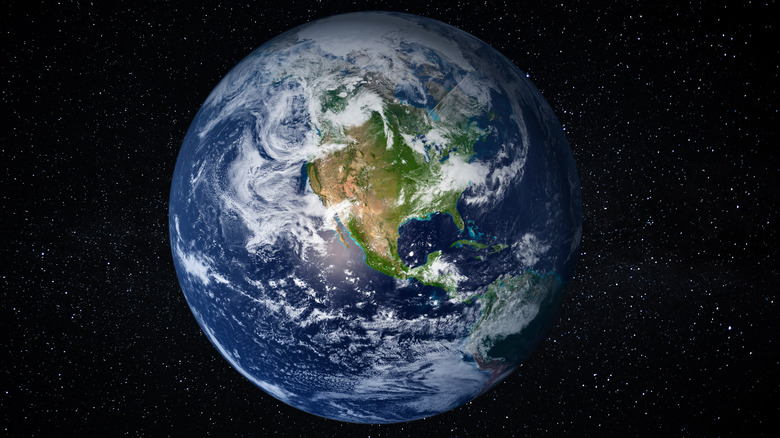The Real Reason You Weigh Less Near The Equator
More than 45 million Americans start a diet each year, often using a variety of weight loss food and other products — spending $33 billion in the process, according to Boston Medical. If you are tired of the scale staying stubbornly in the same place, a little travel might do you good. Just pick the right location and you might even lose a few of those pounds. While launching into space might only be feasible for billionaires such as Jeff Bezos, Richard Branson, and Elon Musk at the moment, astronauts lose weight easily after a day spent in orbit and return to Earth slimmer than when they left — up to six pounds slimmer, in fact, according to a Los Angeles Times article. "It may well be that the launch position, which is a head-down, legs-up position, and the acceleration forces across the chest ... accelerate the adaptation" of the cardiovascular system, said Dr. C. Gunnar Blomquist of the University of Texas Southwestern Medical Center in Dallas to the publication. "The rapid adaptation may be unique to this particular mode of transportation."
Of course, the weight loss is temporary and traveling into space might not fit your vacation budget. The good news, though, is that the equator provides another place where minor weight fluctuations are possible.
Gravity changes impact weight
The equator experiences gravity and other forces differently than other parts of Earth, like the North or South Pole. Your body won't actually change when journeying to that part of the world, but how you experience gravity will, according to Dr. Christopher Baird, an assistant professor of physics at West Texas A&M University. The earth is not a perfect sphere — because it constantly spins, it is an oblate spheroid.
Gravity's strength diminishes as you travel away from the gravitational body; The equator is farther away from Earth's field than the North or South Poles, for instance. If the scale hits 200 pounds at the North Pole then you will weigh about two pounds less at the equator. Because of the Earth's spinning, the centrifugal force at the equator reaches its apex and disappears at the Poles, explained NASA. The equator's concentrated centrifugal force mitigates gravity allowing your weight to seemingly lessen when in that area.
Too bad Mars is not ready for colonization yet. On the red planet, the differences in gravity would allow you to halve your size says Curly Tales ... and that's without giving up carbs!

